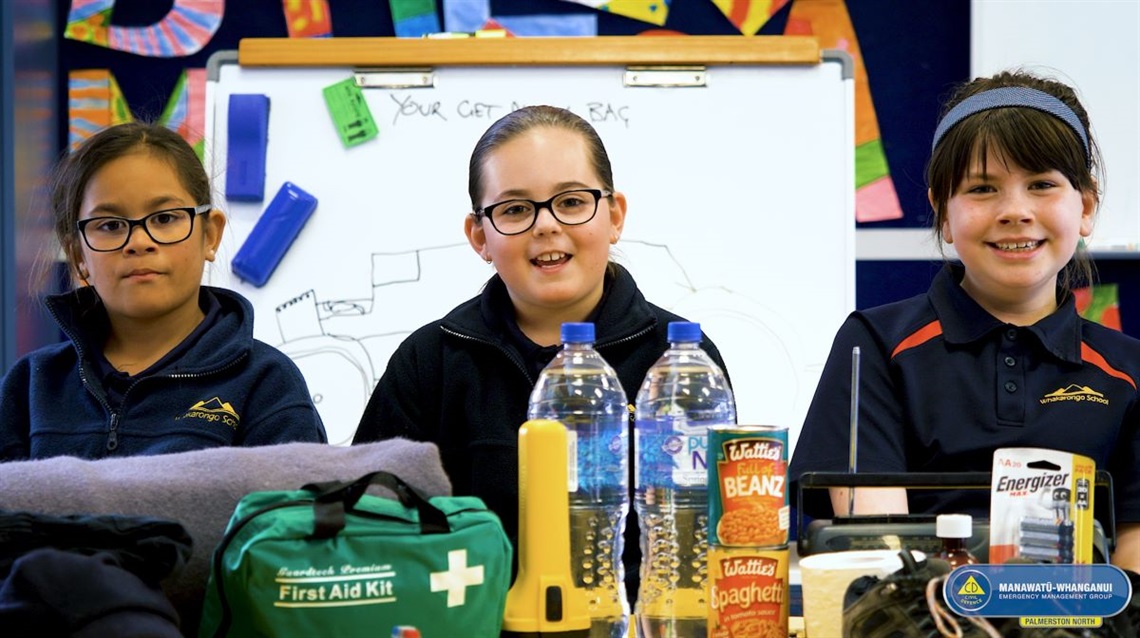Prepare for emergencies and be in to win!
Published on 12 December 2024

Palmerston North residents and businesses are being encouraged to take three steps now to prepare for emergencies, to ensure they and their loved ones are ready to respond when disaster strikes – and there’s a chance to win while you do it.
Emergencies such as floods, storms, or earthquakes can occur with little warning in our city, which means planning is essential—especially for those who may have specific needs, like seniors, families with pets, or individuals reliant on medical equipment.
Emergency management manager Jason McDowell says preparedness has never been more important, especially given the challenges we’ve faced in recent years.
“From the Covid-19 pandemic to Cyclone Gabrielle and several heavy rainfall events causing widespread damage, these disasters have highlighted how quickly emergencies can disrupt our lives. Taking steps now to prepare ensures that families, businesses, and our wider community are better equipped to respond and recover when the unexpected happens.”
Win a 200-litre water tank for your household or workplace!
By sharing how you’re getting ready for emergencies, you could win a 200-litre water tank to help keep your household or workplace prepared.
It’s easy to take part. For families, send us a photo or video of your emergency kit or family plan. For businesses, share a photo or video of your emergency kit, assembly point, or from your team’s recent emergency drill.
You can find out more about the competition at pncc.govt.nz/emergencies or email your entry to communications@pncc.govt.nz.
Get ready for emergencies with three easy steps
Step 1: Understand your risks
- Learn how to prepare and respond to specific disasters like floods, earthquakes, and severe weather.
- Learn about Civil Defence alerts and warning systems.
Step 2: Create an emergency kit
- Stock up on essentials like food, water, medication, flashlights, batteries, important documents and key contacts.
- Pack supplies for pets, including food, water, and a leash or carrier.
Step 3: Develop a family plan
- Identify safe exits in your home and your nearest evacuation route.
- Teach your children about key contacts, meeting points and checklists for what to do in an emergency.
- Practise your plan regularly.
Swimming this summer? Know your risks
With the Manawatū River running through our city and beaches nearby, water safety is an important part of emergency preparedness.
Mr McDowell says everyone heading to the beach should familiarise themselves with designated tsunami safe zones, which are identified on signposts or painted on the roads heading to each beach. Remember, if there’s an earthquake, if it’s long or strong, get gone.
“We encourage everyone to swim at one of our public pools this summer, but if you do choose to swim in the river make sure you know your risks, never jump in within 72 hours of rain and familiarise yourself with river warning signs. Signs of an unsafe river include water moving faster than normal walking pace, discoloured or cloudy water and visible debris such as tree branches and logs. We wish everyone a safe and happy summer,” Mr McDowell says.
For more tips on emergency preparedness and to enter the competition, visit pncc.govt.nz/emergencies
For more information on how to prepare for and respond to specific disasters in Palmerston North, visit pncc.govt.nz/disasters
For water safety tips this summer, visit pncc.govt.nz/watersafety
For national guidance, visit the Get Ready website